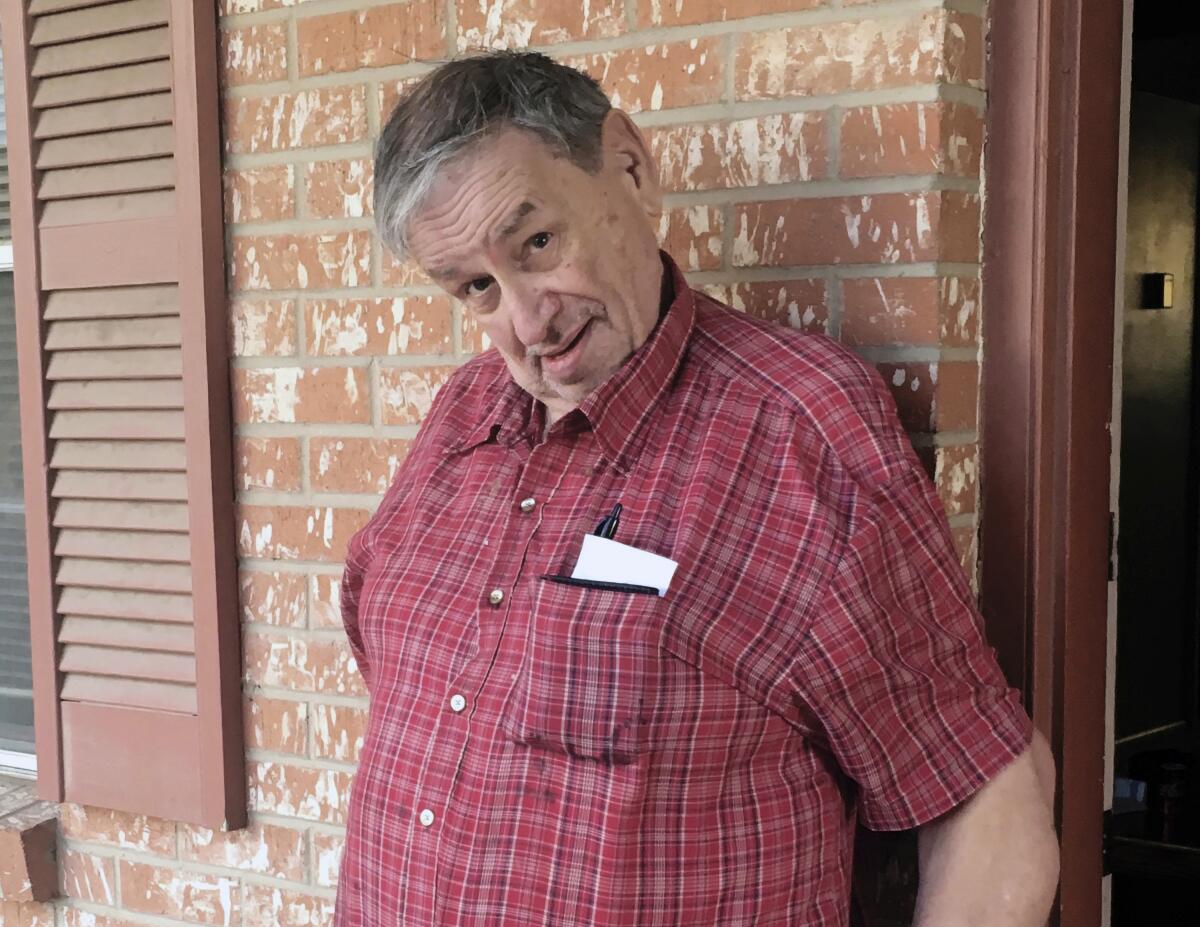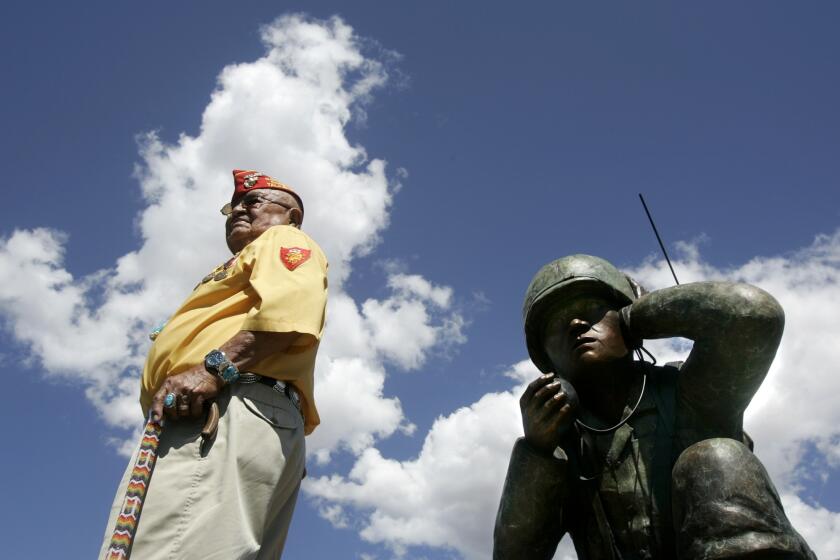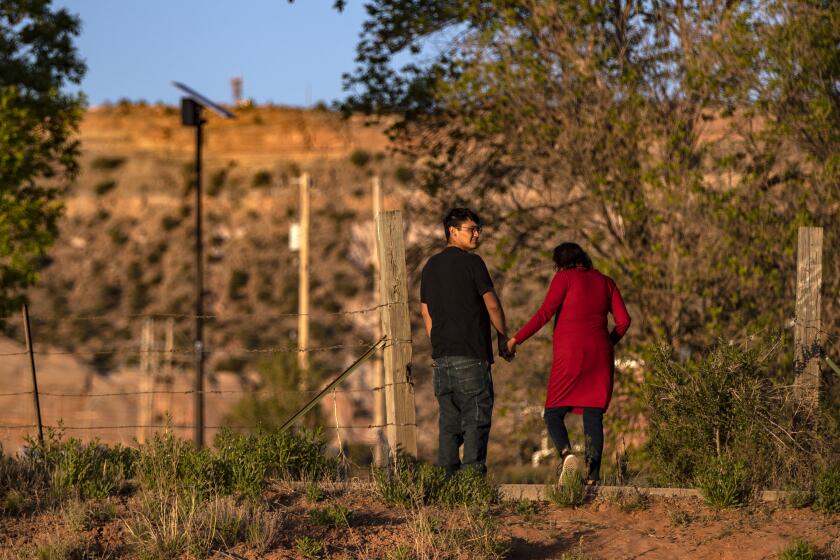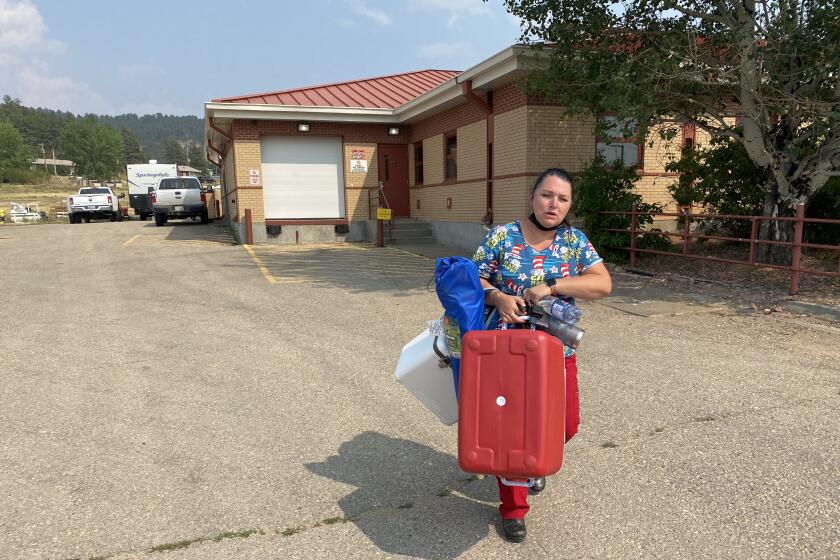Bill Donovan, reporter who covered the Navajo for half a century, dies

- Share via
Bill Donovan, a prolific journalist who covered the Navajo Nation for five decades at newspapers in New Mexico and Arizona, has died. He was 76.
Donovan recently was hospitalized with pneumonia and died Saturday night at his home in Torrance surrounded by loved ones, said his daughter, Kelly Cunningham.
Donovan was an institution on the Navajo Nation, a reporter who quickly could recall moments in Navajo history and phone numbers. He worked for the Gallup Independent, the Navajo Times, the Arizona Republic and other small publications — sometimes at the same time.
Donovan wrote about a longstanding land dispute between Navajos and Hopis, a hospital takeover, politics and efforts to reform tribal government. No story was more memorable — or scary — than a 1989 riot in the tribal capital of Window Rock that turned deadly in a political power struggle, he said days before he died.
And no reporter knew more about what led up to the riot or about former Navajo Chairman Peter MacDonald, who was convicted of inciting it, than Donovan. He drew from decades of reporting to add rich context to his stories.
“One of the most prized qualities that a writer can bring to a story, other than the ability to write well, is institutional memory,” Donovan wrote in a December 2018 essay in the Navajo Times.
Samuel Sandoval, one of the last remaining Navajo code talkers who sent messages during World War II using a code based on their language, has died.
Donovan moved to California in 2018 to be closer to his children but continued writing under a Los Angeles dateline for the Navajo Times, an outlet he was fired from several times over stories he wrote critical of the tribal government. He had two children, Cunningham and Richard Donovan, and two grandchildren.
Cunningham said her father showed her the importance of quick wit, patience and kindness. She recalled a magic show that went awry when she was in grade school in Gallup, N.M., and Donovan was part of the act. Her dad saved her the embarrassment by doing an impromptu comedy show in front of the whole school, she said.
“Dad always lived in the moment in the best way,” she said. “I have never ever seen him angry, judgmental or stressed.”
Raised in Newport, Ky., Donovan attended nearby Georgetown College. He was working the police beat at the Lexington Herald in his early 20s when a sergeant who was Navajo recommended that he go to the Navajo Nation nearly 700 miles away and be a reporter.
The Navajo Nation, which has by far the largest land mass of any Native American tribe in the U.S., now also boasts the largest enrolled population.
Donovan first was hired as a sports editor at the Gallup Independent.
“He didn’t know a damn thing about sports,” said the paper’s publisher, Bob Zollinger. “He didn’t know what a baseball bat was versus a golf club. So he read a few books and started writing sports.”
Donovan was an avid reader. He’d read while in his car at stoplights and during Navajo Nation Council sessions that he attended so regularly that he was dubbed “the councilman from Gallup.” He donated his massive collection of books to local libraries when he left for California.
A fan of movies and eating at McDonalds, Donovan often dressed in dingy plaid button-up shirts and jotted notes on napkins and scraps of paper. He wrote stories from memory before turning to those notes.
Distrust of the U.S. government could have led Native Americans to shun COVID-19 vaccines. Instead, they have the nation’s highest vaccination rate.
Former Navajo President Peterson Zah recalled first meeting Donovan when Zah worked as a legal advocate in the 1970s.
“His heart was in it,” Zah said. “That’s a good sign. He really wanted the truth to come out in most of these stories.”
His knowledge of the Navajo people, history and tribal government was encyclopedic, said Tom Arviso, who recently retired as publisher of the Navajo Times. Donovan wasn’t afraid to take on any subject or anyone, even if it meant he’d be fired yet again from the Navajo Times before it became independent of the tribal government, Arviso said.
“There were people who just didn’t care for him because he was biligaana and felt like he shouldn’t be writing about Navajo people,” said Arviso, using the Navajo word for “white person.” “But Bill was a smart guy, very intelligent and easygoing. He knew so much.”
More to Read
Start your day right
Sign up for Essential California for the L.A. Times biggest news, features and recommendations in your inbox six days a week.
You may occasionally receive promotional content from the Los Angeles Times.










